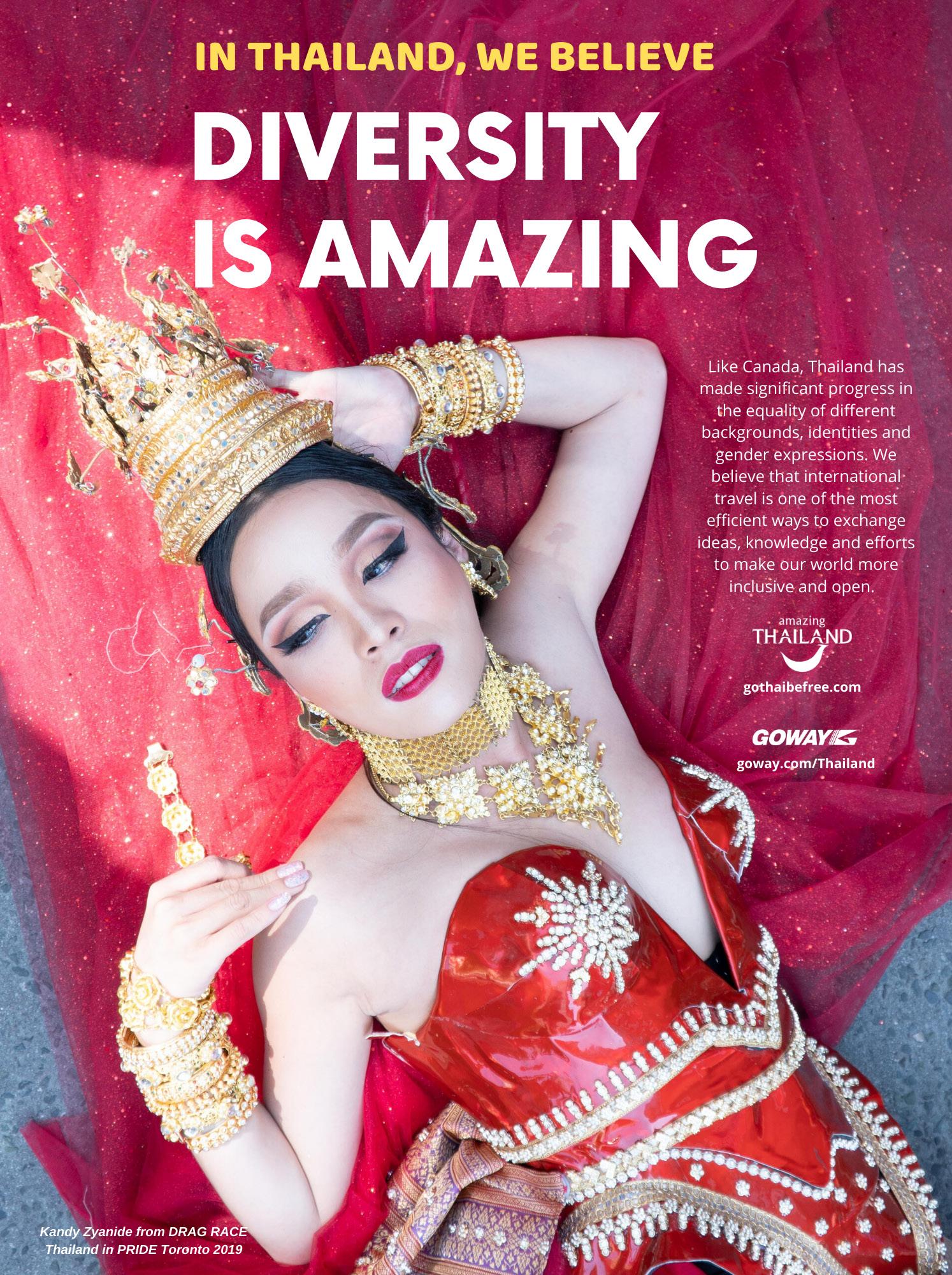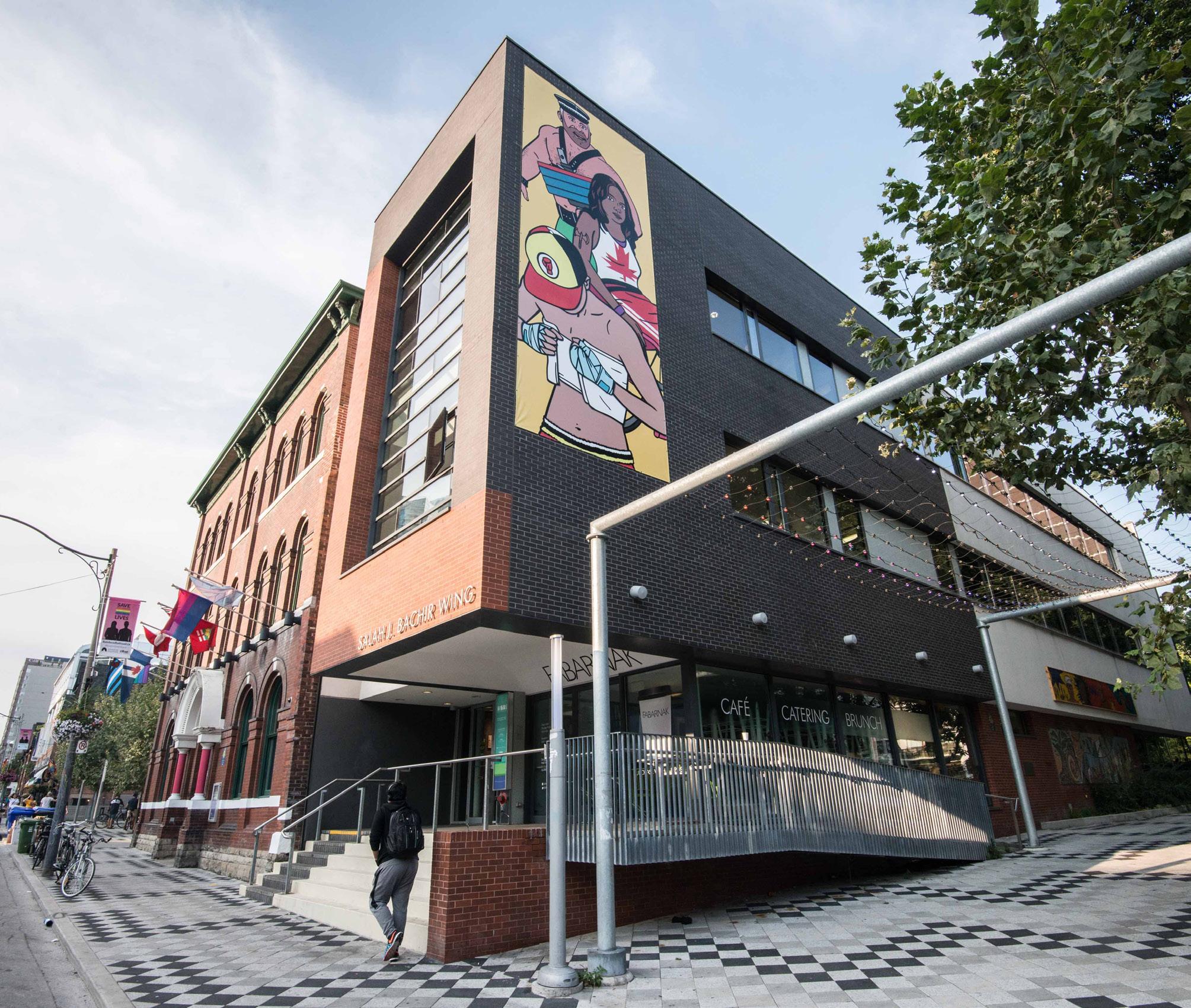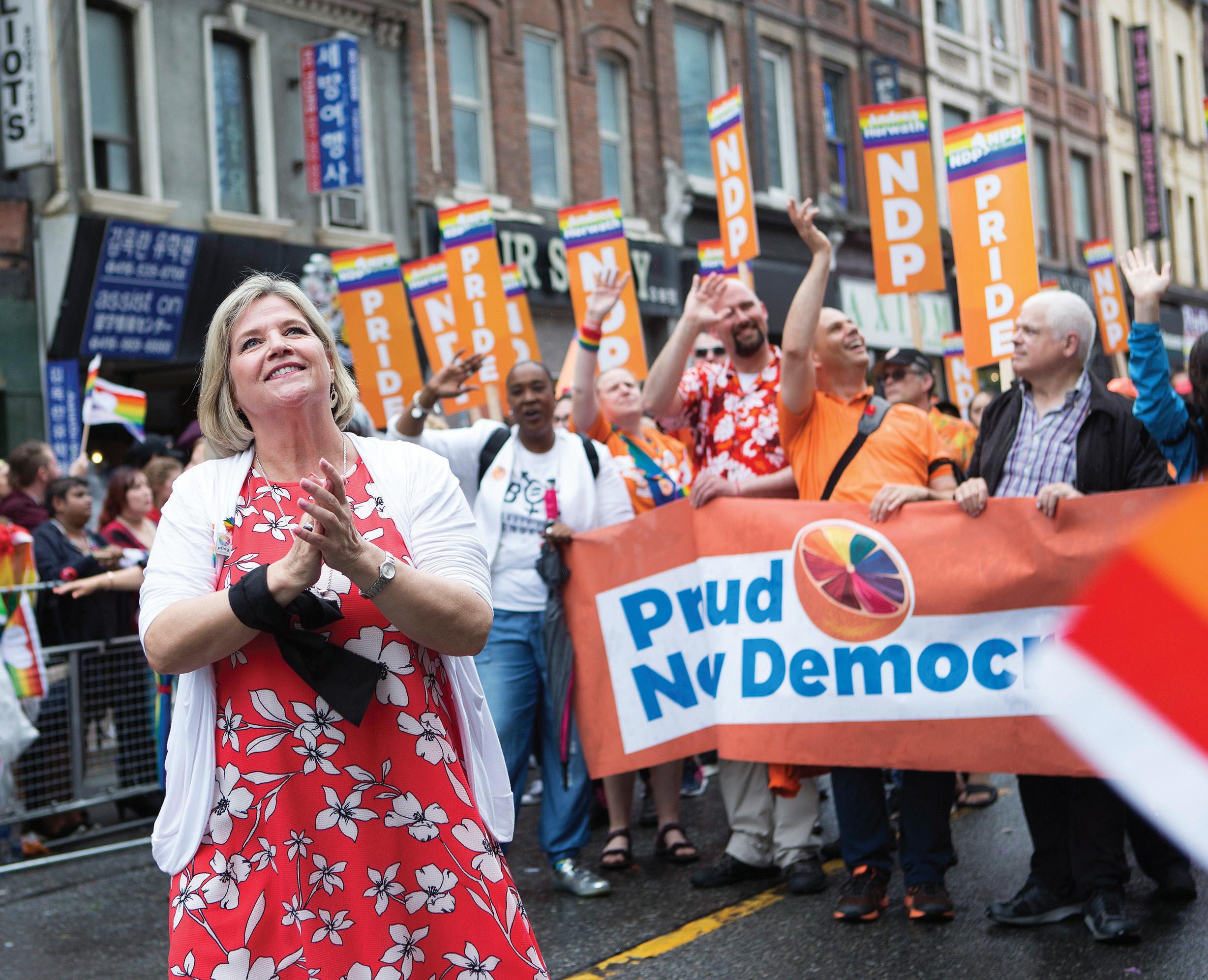
6 minute read
THE RIGHT TO BARE ALL: SHOULD
THE RIGHT TO BARE ALL: Should Nudity be allowed at pride?
The never-ending debate on letting it all hang out continues on
By Bobby Box
In honour of IN Magazine’s Pride issue, we are revisiting the debate of nudity at Pride, asking individuals in our community where they stand so we can better understand…and perhaps settle things once and for all.
The issue really blew up in 2014, after Toronto District School Board (TDSB) trustee Sam Sotiropoulos led a motion requesting that police enforce the city’s public nudity laws at Toronto Pride. “[Pride] is supposed to be a family-friendly event. If you went to any other ward in the city on that day and paraded around naked, you would likely be arrested,” Sotiropoulos argued at the time.
The controversial request threatened the very tradition of Pride, and was covered by the nation’s most reputable news sources. According to them, Sotiropoulos, a “strong believer in traditional family values,” said he had “no problem participating with Pride,” but could not endorse an event “where the laws against public nudity are being flouted.”
His request, supported by two fellow trustees, was ultimately defeated by the TDSB by a vote of 16 to 6, whereas an opposing motion calling on the board to express support for Pride passed by a vote of 17 to 3.
Maria Rodrigues, the trustee who presented the opposing bill, argued that nudity at Pride is rooted in our history – namely, the Stonewall Riots in 1969, which are largely considered the birth of the gay rights movement.
Because Sotiropoulos identifies as a heterosexual male, his argument never sat well with the LGBTQ+ community. As such, we denounced his views as homophobic; in response, he accused the community of “homosexism,” which he defined as discrimination towards the heterosexual community by the LGBT community. His tweet read: “One of the most divisive influences in Canada today is #homosexism it’s disseminators are maliciously rabid.”
Now, back to today. We should address whether nudity at Pride is even legal – which, in most cases, would be a big no. But on Pride, as is similar with Mardi Gras, law enforcement has what could be considered a more relaxed approach and will turn a blind eye. This means, more or less, you can be naked as long as you’re conducting yourself in a responsible manner.
“In my professional experience working with Pride, nudity has never been an issue with the committee,” Phil Villeneuve, co-programming director at Pride Toronto and editor of Yohomo.ca, tells IN. “Folks naked in the parade or walking down Church Street have always been part of the expression and freedom of that big weekend.”
Most agree with Villeneuve. In a poll I published on Twitter, 69 per cent of the nearly 300 votes said they believe people should be allowed to strut their stuff in the buff. Though, admittedly, my social channels draw mainly a queer crowd.
A CBC poll, which is likely to attract a more diverse voting sample, found 62 per cent of people think there should be no nudity at Pride. The biggest argument against – both among their sample and mine – is that children shouldn’t be exposed to naked people at a family-friendly event that attracts nearly 6,000 children.
Chris, 44, who used to run a queer youth centre, questions whether nudity is the most reasonable way to demonstrate sexual liberation. “Is that even the message they would take away from the experience?” he asks. “Or does the sexualization of Pride make it an unwelcome environment for them?”
Dave, 33, agrees, explaining there are better ways to show pride. “In my opinion, those who insist on being completely nude are just doing it for the thrill and attention,” he says. “It’s a shame because most people, regardless of orientation, don’t want to be confronted with someone’s naked body in public.”
Kat, 33, is a new mother and regular Pride-goer. “I love Pride and I’ve always wanted to bring my kid when I had one,” she shares. “But now that I have one, my mind has changed – there are way too many naked men there. For my young daughter’s sake, I wish the full frontal would not exist. I know it’s not a kids’ street party, but I want her to go out and support these things without being uncomfortable.”
Villeneuve says the pushback the Pride committee has been getting on nudity has been, in large part, from heterosexual people. “I truly have no clue why it’s an issue, and that includes children seeing naked people,” he says. “These are human bodies, and feeling the freedom to be naked during Pride is a beautiful thing. The nudist groups this city has should be able to participate in the street fair and parade like anyone else.”
The prevailing perspective from the pro-nudity camp is that our queer identity is the direct result of who we have sex with and, therefore, Pride should be sexual.
“Despite creating successful palatability campaigns for basic human rights regarding queer/trans communities around the concept of love, marriage, and so on, our ‘otherism’ is directly related to who we have sex with, how we have sex with them, and body issues related to gender identity/expression,” says Jeremy, a 47-year-old queer writer. “Of course nudity will and should be pervasive at Pride. Otherwise, you’ve got Rib Fest but they are only serving salad.”
Benjie, a 31-year-old app developer and staunch kinkster, believes the discourse around nudity at Pride revolves around society’s discomfort with sex. “Pride absolutely needs to be sex-positive – needs to be,” he starts. “For LGBTQ people, our queerness comes from who we have sex with,” he says, acknowledging that, for a lot of trans and/or queer people, Pride can be more about gender than sex. “The thing that makes us different is sex. It’s the platform that we’ve built our culture on. What we need to do is shift our culture’s relationship to sex and sexuality and not just emulate the relationship to it our oppressors have.”
Others suggest a compromise. Most suggest that nudity be limited to contained areas so families and other parties who might be offended will know which spaces they should avoid.
“If it is allowed, then it should be done in a way where there are controlled ins, outs and sightlines of the place where it is held that are signed respectfully saying that one entering is consenting to see nudity or be nude if they so choose,” says Carey, 32, who responded via Twitter.
“Save the nudity for the parties and clubs afterwards,” adds Mike, 25, who also responded on Twitter. “The parade and festival should be PG – shirtless is fine, but anything less than that is too much.”
The discourse of whether nudity is offensive appears to be the clearest line in the sand between both camps. For one side, nudity is very adult for a space that welcomes families. For others, nudity is an expression, a nod to our ancestors who fought for our rights and sexual freedom. Neither argument is wrong, of course: they’re just personal. And if Pride is anything, it is being able to acknowledge who we are and how we feel.
BOBBY BOX is a prolific freelance journalist in Hamilton, Ont. He currently works as contributing editor at Playboy.com and has had the privilege of speaking with the world’s most recognized drag queens, including, most recently, Trixie Mattel and Alaska Thunderfuck. While proud of his work, Bobby is not above begging. He asks that you follow him on Twitter at @bobbyboxington.
Come see us, we have everything to help you celebrate!
493 QUEEN STREET WEST, TORONTO 416 966-6969 SEDUCTIONTORONTO SEDUCTIONTO SEDUCTION.CA 35









